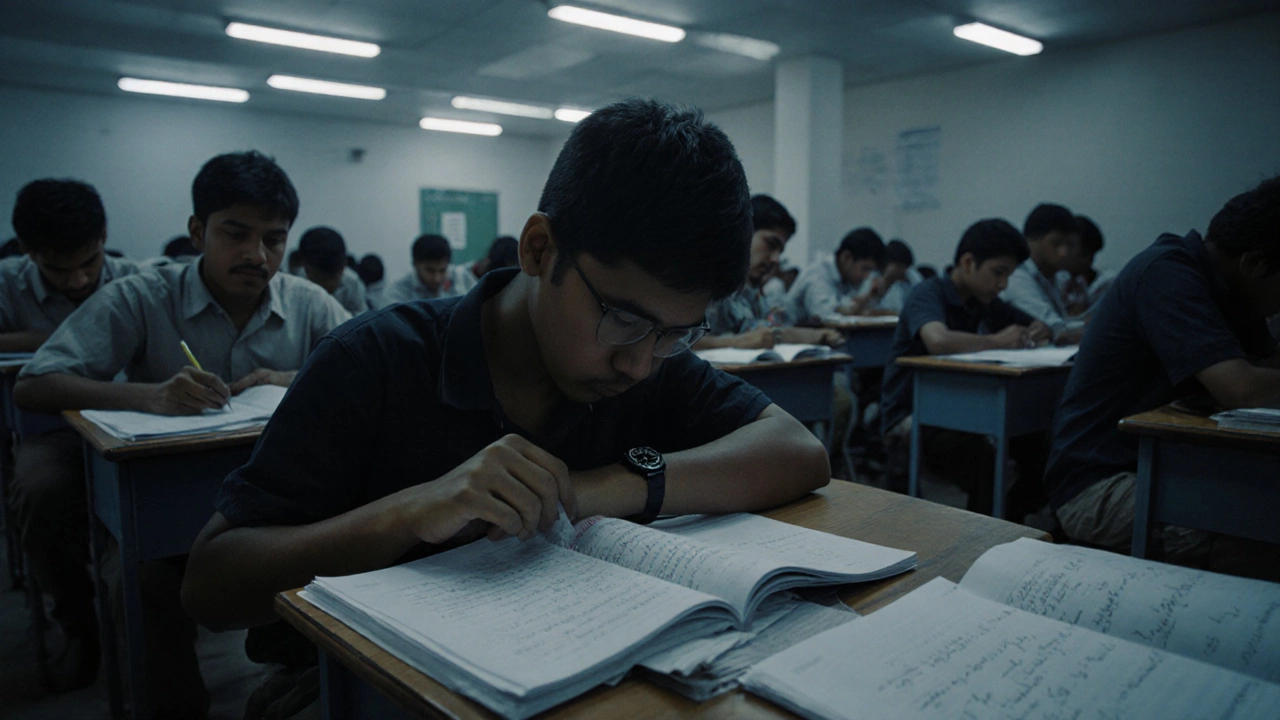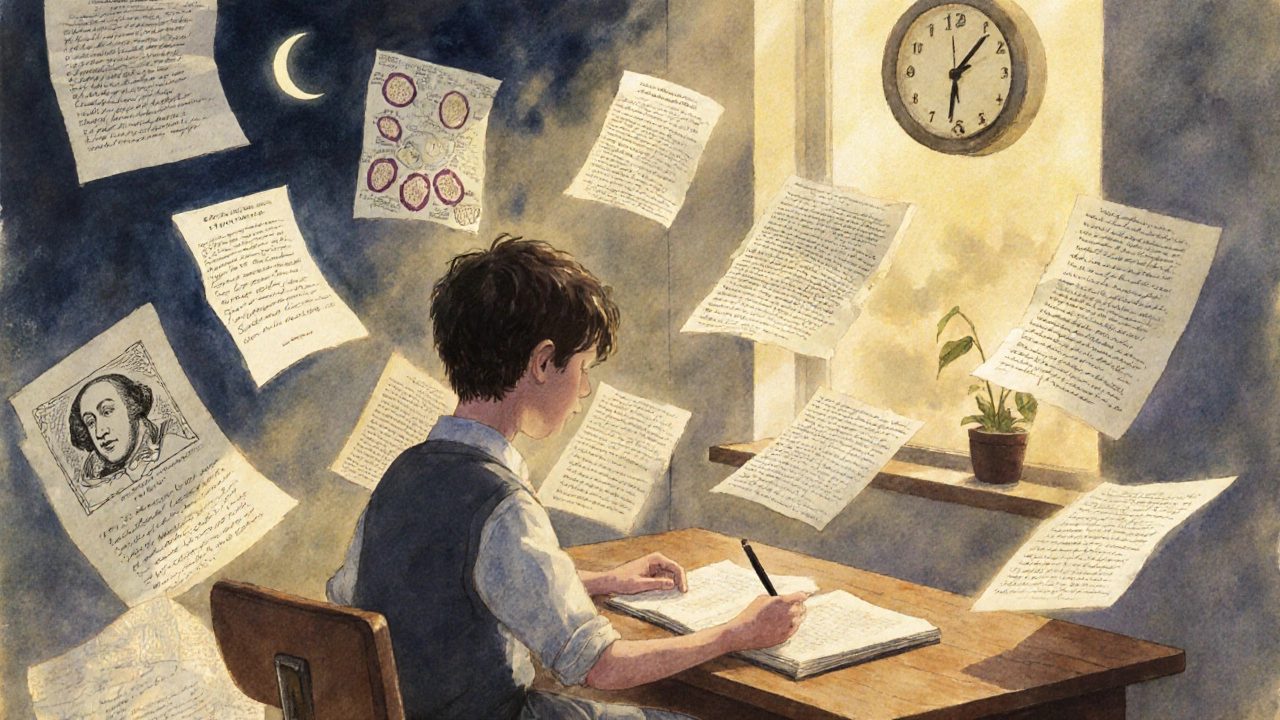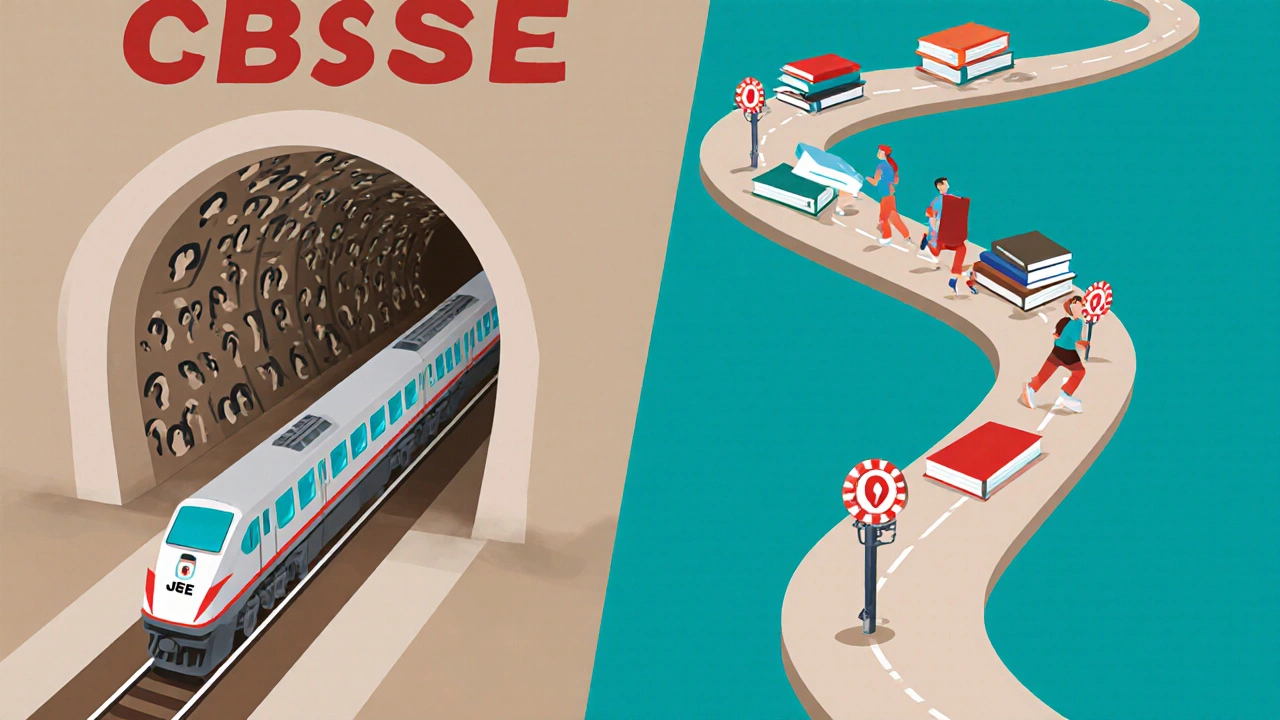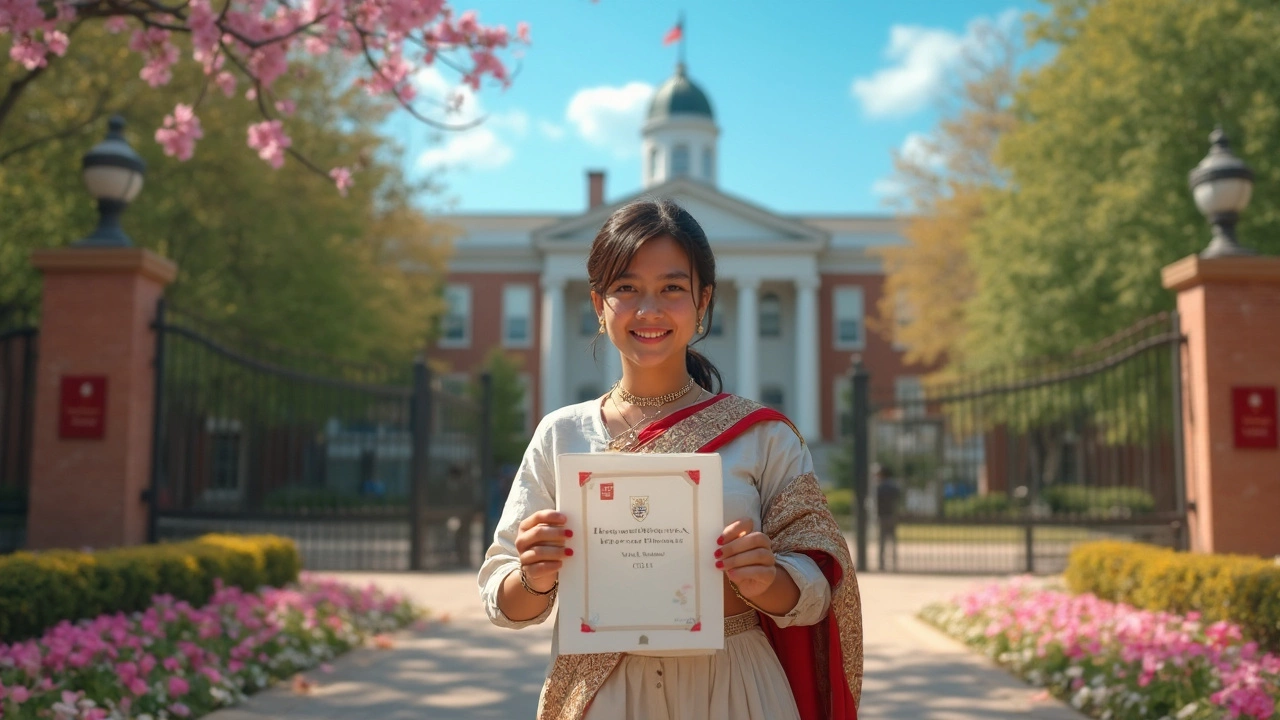Which Are the Two Toughest School Boards in India?

Board Fit Calculator
Which Board Matches Your Child's Profile?
This tool helps you identify whether CBSE or ICSE aligns better with your child's learning style and future goals. Based on the comparison in the article, answer these questions to get a personalized recommendation.
When parents and students in India talk about the toughest school boards, two names always come up: CBSE and ICSE. But calling one "tougher" than the other isn’t just about difficulty-it’s about style, depth, and what kind of learner thrives under each system. If you’re trying to decide which board suits your child-or even if you’re a student wondering why your syllabus feels so heavy-this isn’t about rankings. It’s about understanding what makes each board challenging in its own way.
CBSE: The High-Speed, High-Stakes System
CBSE, or the Central Board of Secondary Education, runs the most widely followed curriculum in India. Over 20,000 schools across the country and abroad teach under CBSE. It’s the board behind the JEE and NEET exams, which means its syllabus is built like a launchpad for national competitive exams.
The pace is fast. By Class 10, students are expected to cover advanced math topics like quadratic equations, trigonometry, and coordinate geometry. In Class 11 and 12, physics includes electromagnetism and optics with heavy numerical problem-solving. Chemistry dives into organic reaction mechanisms, and biology requires memorizing complex systems like the human nervous system or plant physiology.
What makes CBSE tough isn’t just the content-it’s the pressure. Students often start preparing for JEE or NEET as early as Class 8. Schools push for speed over depth. Many students finish the entire Class 12 syllabus by November so they can spend the next six months solving past papers. The exams are designed to test accuracy under time pressure. One wrong step in a math problem can cost you five marks. There’s little room for creative expression in answers.
CBSE is structured for efficiency. It’s the board that trains students to perform under stress, to think in multiple-choice formats, and to memorize standardized solutions. If you’re aiming for engineering or medicine, CBSE gives you the toolkit. But it doesn’t reward curiosity. It rewards consistency.
ICSE: The Depth-First, Detail-Obsessed System
ICSE, or the Indian Certificate of Secondary Education, run by CISCE, is smaller-only about 2,000 schools use it-but it’s known for being brutally thorough. If CBSE is a sprint, ICSE is a marathon with checkpoints every 500 meters.
ICSE’s syllabus is broader and deeper. In Class 10, English isn’t just grammar and comprehension-it’s literature analysis. Students read Shakespeare, poetry by Wordsworth, and modern novels. They write essays that require critical thinking, not just regurgitation. History isn’t memorizing dates-it’s analyzing causes and consequences of events like the Indian independence movement or the French Revolution.
Science subjects demand detailed explanations. In physics, you don’t just solve for force-you explain Newton’s laws using real-world examples. In biology, you’re expected to draw labeled diagrams of cell organelles and describe their functions in paragraphs, not bullet points. Mathematics includes more theoretical questions and word problems that require multi-step reasoning.
ICSE exams are longer. A 3-hour paper might have 10 questions, each requiring 200-300 words. There are no multiple-choice questions. Every answer must be written out. That means students need strong writing skills, clear logic, and the stamina to write for hours.
ICSE also requires students to complete internal assessments in subjects like art, music, and computer applications. These aren’t optional extras-they count toward the final grade. The board values well-rounded development. But that also means students are juggling more tasks than their CBSE peers.
Comparison: Structure, Pressure, and Outcomes
Here’s how the two boards stack up in key areas:
| Feature | CBSE | ICSE |
|---|---|---|
| Exam Format | Mixed: MCQs, short answers, long answers | Only written answers-no MCQs |
| Syllabus Depth | Focused on exam-relevant topics | Broad, detailed, includes literature and projects |
| Language Emphasis | English is a subject | English is a core skill-used in all subjects |
| Assessment Style | Speed and accuracy | Depth and expression |
| Internal Assessments | Minimal | Significant (art, projects, labs) |
| Prep for Competitive Exams | Direct alignment with JEE, NEET | Indirect-requires extra coaching |
CBSE students often score higher in national entrance exams because the syllabus matches their pattern. ICSE students, on the other hand, tend to excel in university applications abroad-especially in the UK, Canada, and Australia-because their writing and analytical skills are sharper.

Who Does Each Board Suit?
If your child wants to become a doctor or engineer and plans to take JEE or NEET, CBSE is the obvious path. It’s the highway designed for that destination. The coaching ecosystem, study materials, and mock tests are all built around CBSE.
If your child loves reading, writing, asking "why?", and enjoys exploring ideas beyond textbooks, ICSE might be the better fit. It doesn’t prepare them for JEE-but it prepares them for university, research, or careers in law, journalism, design, or public policy.
Some families choose ICSE for Class 10 and switch to CBSE for Class 11 to focus on competitive exams. That’s possible, but it’s not easy. The shift in teaching style, exam pattern, and pace can be jarring. Students who switch often struggle with the sudden drop in writing requirements and the rise in rote memorization.
Why State Boards Aren’t Even in the Conversation
You might hear people say, "My state board is harder." But in national discussions about difficulty, state boards rarely come up. Why?
State boards like Maharashtra’s SSC, Tamil Nadu’s Samacheer Kalvi, or Uttar Pradesh’s UP Board are designed for local needs. Their syllabi are simpler, exams are less competitive, and the focus is on passing, not ranking. While some state boards have improved-especially in Karnataka and Kerala-they still don’t match the scale, depth, or pressure of CBSE or ICSE.
State boards are excellent for students who don’t plan to take national exams. But if you’re aiming for top engineering colleges, medical schools, or foreign universities, CBSE and ICSE are the only two that matter.

What No One Tells You
Neither board is "better." They’re just different tools for different goals.
CBSE teaches discipline under pressure. It’s the board that turns students into exam machines. If you can survive CBSE, you can handle deadlines, time crunches, and high-stakes testing. But many students burn out by Class 12 because they’ve never been asked to think creatively.
ICSE teaches thinking. It’s the board that turns students into writers, analysts, and communicators. But it can be overwhelming for those who struggle with long-form writing or lack strong English skills. The workload is heavier, and support systems are fewer.
The toughest board isn’t the one with the hardest syllabus. It’s the one that doesn’t match your child’s learning style.
Final Thought: It’s About Fit, Not Fear
Don’t choose a board because it’s "tough." Choose it because it matches your goals.
If your child is calm under pressure, good with numbers, and focused on engineering or medicine-go CBSE.
If your child asks questions, loves books, writes well, and might study abroad-consider ICSE.
There’s no prize for picking the hardest path. There’s only success when the path fits the person.
Is ICSE harder than CBSE for Class 10?
Yes, ICSE is generally considered harder for Class 10 because of its broader syllabus, emphasis on detailed written answers, and inclusion of literature and internal assessments. CBSE focuses more on exam-oriented topics and has a simpler structure with some multiple-choice questions.
Which board is better for NEET preparation?
CBSE is better for NEET preparation because its syllabus for Class 11 and 12 biology, chemistry, and physics is directly aligned with the NEET exam pattern. Most NEET coaching materials are designed around CBSE content.
Can I switch from ICSE to CBSE after Class 10?
Yes, you can switch, but it’s challenging. CBSE moves faster and expects more memorization and problem-solving under time pressure. ICSE students often need extra coaching to adjust to the MCQ format and reduced emphasis on long answers.
Do foreign universities prefer ICSE or CBSE?
Many foreign universities, especially in the UK, Canada, and Australia, prefer ICSE because of its emphasis on critical thinking, writing, and well-rounded education. However, CBSE is also widely accepted-especially if the student has strong extracurriculars and standardized test scores like SAT or IELTS.
Is ICSE more expensive than CBSE?
Yes, ICSE schools are often private and charge higher fees. They also require more resources for internal assessments, projects, and literature materials. CBSE schools include many government-aided institutions, making them more affordable.

